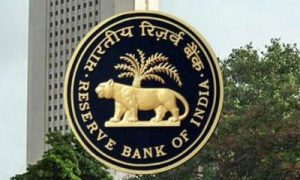To reduce cheque-related frauds, the Reserve Bank of India (RBI) has asked banks to implement a system called Positive Pay from January 2021. The system adds an extra layer of security.
“The system acts against cheque frauds where the cheque leaf and signature are genuine but a fraudster alters cheque details,” said Bharat Panchal, chief risk officer, India, Middle East and Africa, FIS, a technology company that focuses on financial services sector.
It is optional for banks to implement the system mandatorily or leave it to the customer’s discretion. “While availing of this facility is at the discretion of the account holder, banks may consider making it mandatory in case of cheques for amounts of ₹5 lakh and above,” according to the RBI notification.
The Positive Pay facility is being developed by the National Payments Corp. of India (NPCI).
How does it work?
Customers simply have to share the details of the cheques they issue with the bank. Before making the payment against the cheque, banks will match the details on the cheque with those provided by the customer.
According to the RBI’s notification, the issuer of the cheque will submit the details electronically, through channels such as SMS, mobile app, internet banking, ATM and so on. Some banks such as IDBI Bank have already started encouraging customers to use this feature. According to the bank’s website, customers can update details of cheques via IDBI Bank’s GO Mobile+ app.
Customers will need to enter details such as name of the person or organization to whom the cheque is issued, the amount, the cheque number and the date of issuance.
Once the customer shares the details, banks’ system will upload the data into a centralized data system. On receiving the cheque, the bank will verify the details from the central database. The system allows banks to authenticate the cheque twice—once by matching the signature of the issuer and then by cross checking the details.
Cheques already have security features such as watermark, logo, pantographic image, serial number, account number and features that are not visible under normal light.
The advantage
The key advantage of the system is fraud prevention. “Positive Pay works as an insurance for customers. If an account holder shares the details of the issued cheque and his bank still clears a fraudulent cheque, the onus is on the bank and not on the customer,” said Panchal.
Typically, when a fraudulent transaction happens through cheques, it is difficult to put the onus either on the customers or banks. Banks, typically, don’t take responsibility, if the signature and cheque leaf are genuine. If a beneficiary alters the cheque, banks usually attribute it as the account holder’s negligence.
Even if your bank doesn’t make the Positive Pay system mandatory, opt for it to avoid falling victim to banking fraud.





































